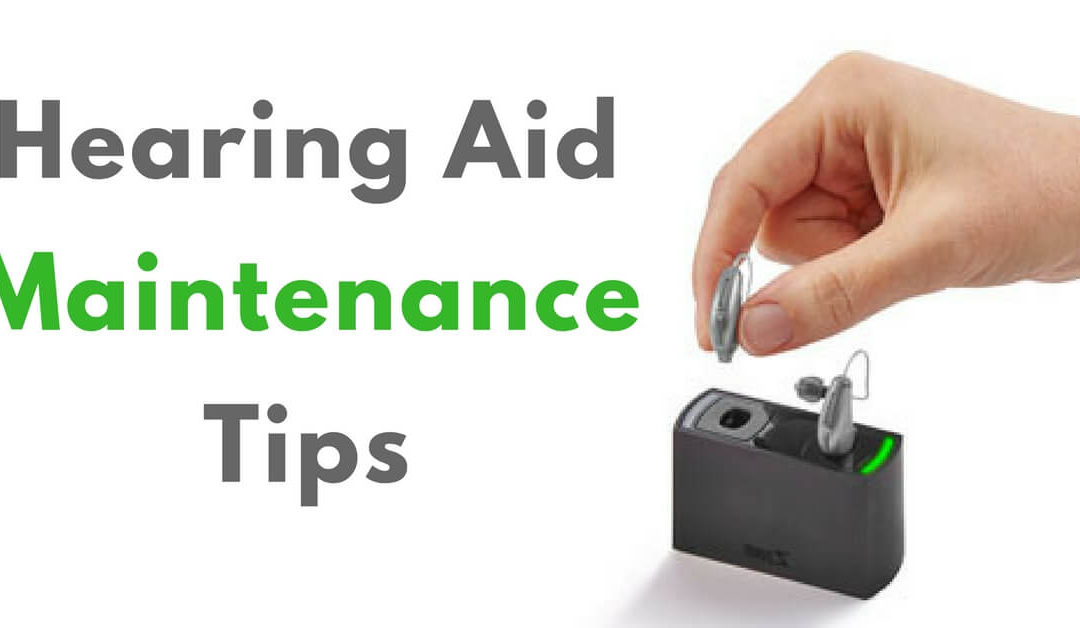Once hearing aids have become seamlessly incorporated into your life, they may not be the first thing on your mind. That’s their purpose, of course, to amplify sounds and provide you with clear accessibility to the world around you.
Most hearing aids are advanced and function in any number of daily activities in an active lifestyle. At the same time, it’s important to remember that they are sophisticated and costly electronic devices which require basic care and maintenance to keep them functioning at their best.
Here are a few tips on hearing aid maintenance for a new hearing aid wearer – and small reminders for the experienced wearer.
Avoid moisture!
Hearing aids are comprised of sensitive electronic components. Although they are often housed in special coatings to repel small amounts, exposure to moisture has the potential to damage them.
Rather than storing your hearing aids in your washroom, where moisture may collect after a shower, keep them in a drawer or bedside table. For folks who live in humid environments, consider using a dehumidifying unit for your hearing aid. This is especially useful if you go between the warm outdoors and interiors cooled with air conditioners. Often times, these dehumidifying units also double as battery chargers.
Remember to remove your hearing aids before swimming or showering, as well as washing your face or shaving. At the same time, remember to remove them before using a hair dryer, as the heat may also cause damage.
Clean your hearing aids periodically
From daily wear, your hearing aids may pick up dust, lint, or earwax. This debris may cause damage or glitches to your hearing aid by clogging up certain components. Your hearing aid provider will offer periodic cleaning and maintenance, but in the interim, you may clean them carefully with a soft, lint-free cloth, soft toothbrush, or cotton swab. You may want to build in a daily or weekly routine to remove earwax and debris. Be sure to follow instructions provided by your provider.
Though it may seem like a good idea, do not attempt to dissemble or take apart your hearing aid. Also, do not attempt to clean the intricate components. If you accidentally damage your hearing aids, your warranty on the device may be nullified. Other than simple cleaning, be sure to take your hearing aids in to your specialist or audiologist for maintenance.
Store your hearing aids in a safe, dry space
With many small components, hearing aids may prove dangerous for pets and children. If they are kept in a precarious area, they may get knocked over and damaged. Avoid keeping your hearing aids in a communal space, where they may be misplaced or even – tragically – broken or thrown away on accident!
For newer wearers, begin by building in a daily routine to remove and store your hearing aids before bed each night. Be sure to keep them out of reach of small children. Usually a night table or dresser are safe places for them; again, avoid leaving them in the washroom due to moisture accumulation. If you must take out your hearing aids before exercise, make sure to store them in a safe place. Avoid storing your hearing aids in warm places on hot days, such as the glove compartment of a car. The heat could also do damage to your devices.
Change your batteries often – or make sure they are recharged
For hearing aids that require battery changes, be sure to test them daily to assure best performance. Every morning, after inserting your aids, rub your hands gently by your ears to make sure you can hear the sound clearly.
Newer digital hearing aids drain batteries quickly; you don’t want to be stuck with a drained hearing aid battery in a situation where you haven’t brought a spare set. If you are not using the hearing aid, we recommend removing the batteries overnight. This also allows them some breathing room from moisture that may have accumulated during the day.
For rechargeable hearing aids, follow instructions provided by your hearing specialist – depending on the hearing aid, an 8-hour charge is usually sufficient to ensure a full battery.
Schedule periodic cleanings with your hearing specialist or audiologist
Most hearing healthcare providers offer complimentary hearing aid cleanings and maintenance. To ensure your hearing aid’s best performance, remember to check in with your hearing specialist or audiologist to schedule cleanings and maintenance. If, between scheduled cleanings, you find that you are unable to remove debris and earwax from your device, bring them in for professional care. Because most components are sensitive, you can avoid unintended damage by bringing your hearing aids in. Your hearing specialist or audiologist will be able to clean them with special instruments designed for hearing aid care.

